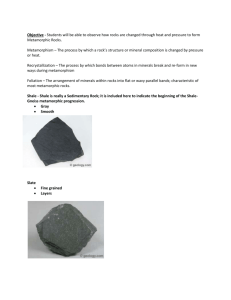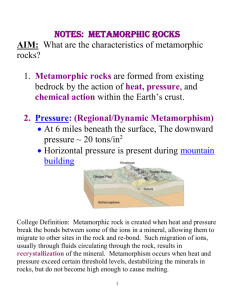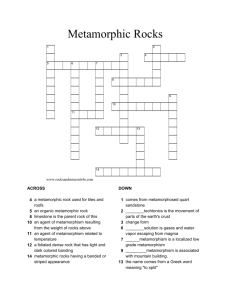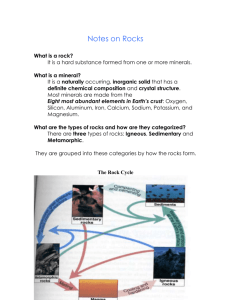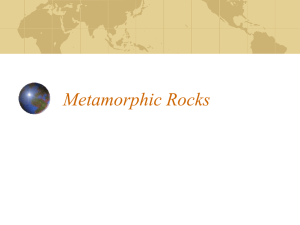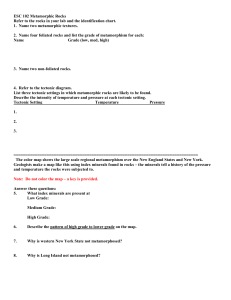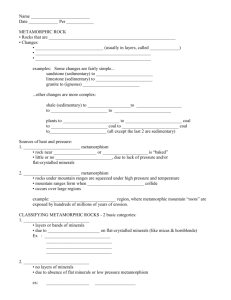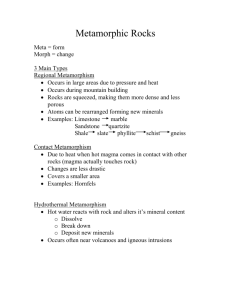File
advertisement
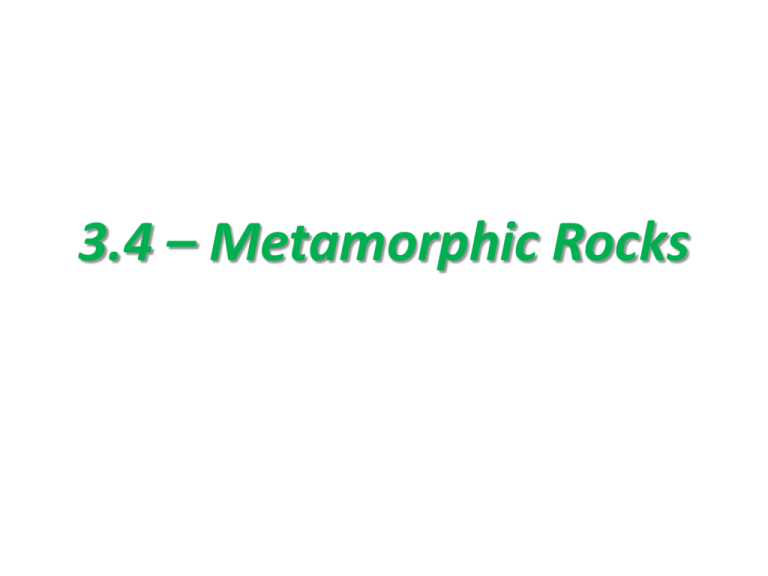
3.4 – Metamorphic Rocks Formation of Metamorphic Rocks metamorphic rocks: rocks made from pre-existing rocks that were changed by metamorphism metamorphism: process where changes in temperature and pressure cause one type of rock to turn into a new rock during metamorphism, heat, pressure, and solution (hot fluids) cause some minerals to change into other minerals minerals may also change in size or shape, or they may separate into parallel bands that give the rock a layered appearance two types of metamorphism occur in Earth’s crust - contact metamorphism and regional metamorphism contact metamorphism: change due to contact with magma regional metamorphism: change due to changes in temperature and pressure over a large area (region) Classes of Metamorphic Rocks Foliated Rocks foliated: rocks where the mineral grains are arranged in bands extreme pressure may cause the mineral crystals in the rock to realign or regrow to form parallel bands foliation also occurs as minerals that have different compositions separate to produce a series of alternating dark and light bands foliated metamorphic rocks include slate, schist, and gneiss slate (from shale) schist (from shale or slate) notice LOTS of shiny mica! gneiss (from granite) Nonfoliated Rocks nonfoliated: minerals grains are not arranged in planes or bands many nonfoliated metamorphic rocks contain grains of only one mineral or very, very small amounts of other minerals other nonfoliated metamorphic rocks contain grains that are round or square these grains are unlikely to change shape or position when exposed to directed pressure due to their shape nonfoliated metamorphic rocks include marble and quartzite marble (from limestone) quartzite (from sandstone)
